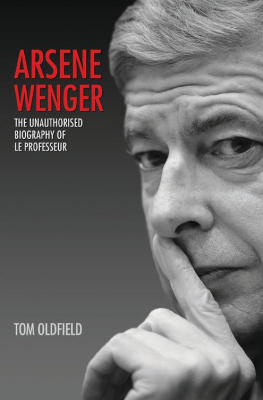Oldfield - Simple But Not Easy
Here you can read online Oldfield - Simple But Not Easy full text of the book (entire story) in english for free. Download pdf and epub, get meaning, cover and reviews about this ebook. genre: Romance novel. Description of the work, (preface) as well as reviews are available. Best literature library LitArk.com created for fans of good reading and offers a wide selection of genres:
Romance novel
Science fiction
Adventure
Detective
Science
History
Home and family
Prose
Art
Politics
Computer
Non-fiction
Religion
Business
Children
Humor
Choose a favorite category and find really read worthwhile books. Enjoy immersion in the world of imagination, feel the emotions of the characters or learn something new for yourself, make an fascinating discovery.
- Book:Simple But Not Easy
- Author:
- Genre:
- Rating:4 / 5
- Favourites:Add to favourites
- Your mark:
- 80
- 1
- 2
- 3
- 4
- 5
Simple But Not Easy: summary, description and annotation
We offer to read an annotation, description, summary or preface (depends on what the author of the book "Simple But Not Easy" wrote himself). If you haven't found the necessary information about the book — write in the comments, we will try to find it.
Oldfield: author's other books
Who wrote Simple But Not Easy? Find out the surname, the name of the author of the book and a list of all author's works by series.
Simple But Not Easy — read online for free the complete book (whole text) full work
Below is the text of the book, divided by pages. System saving the place of the last page read, allows you to conveniently read the book "Simple But Not Easy" online for free, without having to search again every time where you left off. Put a bookmark, and you can go to the page where you finished reading at any time.
Font size:
Interval:
Bookmark:
HARRIMAN HOUSE LTD
3A Penns Road
Petersfield
Hampshire
GU32 2EW
GREAT BRITAIN
Tel: +44 (0)1730 233870
Fax: +44 (0)1730 233880
Email: enquiries@harriman-house.com
Website: www.harriman-house.com
First published in Great Britain in June 2007 by Doddington Publishing
Reprinted September 2007, January 2008 and October 2011
This eBook edition November 2011
Copyright Harriman House Ltd
The right of Richard Oldfield to be identified as the author has been asserted in accordance with the Copyright, Design and Patents Act 1988.
ISBN: 9780857192011
British Library Cataloguing in Publication Data
A CIP catalogue record for this book can be obtained from the British Library.
Illustrations by James Burgess
All rights reserved; no part of this publication may be reproduced, stored in a retrieval system, or transmitted in any form or by any means, electronic, mechanical, photocopying, recording, or otherwise without the prior written permission of the Publisher. This book may not be lent, resold, hired out or otherwise disposed of by way of trade in any form of binding or cover other than that in which it is published without the prior written consent of the Publisher.
No responsibility for loss occasioned to any person or corporate body acting or refraining to act as a result of reading material in this book can be accepted by the Publisher, by the Author, or by the employer of the Author.
One does not often have the opportunity to write a few words about a new book on investment which is not only full of insights and a delight to read, but is different from almost all others because it comes from one of todays leading practitioners with an outstanding record of investment performance. For eight years, with great success, Richard Oldfield looked after the investments of a family office in London with substantial assets. More recently he started his own firm and, in early 2007, he became chairman of Oxford Universitys investment committee.
In Simple but not easy , Richard provides a common sense guide to the art of investment, enlivening such apparently dull topics as fees and benchmarks and valuations with a treasure trove of entertaining anecdotes and asides. He demolishes with clinical logic much of the conventional wisdom propagated by some professional investment consultants and practised by most institutional investors. He exposes the inanity of the index hugging and short-termism so prevalent in todays investment community, which, because of the mispricing these practices create, provide investment opportunities. He explains the futility of market forecasts and why the consensus is almost always wrong. He tells you what to look for when choosing an investment manager, and illustrates the pitfalls with candid confessions of some of his own mistakes. And, by the way, the book is worth reading for its critique of hedge funds alone.
Richard is more than just an exceptional investor. He reads widely, as most successful investors do, writes easily and amusingly as this book demonstrates and, although modest almost to a fault, is a natural public speaker who enjoys explaining his essentially contrarian, often courageous and occasionally controversial investment philosophy to others. This he does in an uncomplicated way and without the sometimes impenetrable investment speak used by so many in the business. He looks after a big house in Kent, puts on an opera every summer to raise money for one of several charities to which he lends his talents and energy, rides to hounds, runs marathons and dabbles in politics. He is a keen gardener, knows a lot about trees, has an eye for modern art and a weakness for dark chocolate. He is, in short, a man of many parts, and if not yet quite an eccentric, he is at least an original, and certainly an original thinker. Above all, he is blessed with a finely tuned sense of humour.
I have had the good fortune to have known Richard since the start of his career more than 25 years ago, and I have always enjoyed his company and admired his achievements. Now I commend his book to anyone who wants to take an informed interest in their own portfolio or to know how to appoint an investment manager. It should certainly be required reading for every investment management professional.
Peter Stormonth Darling
And what do you do?
Im an investment manager.
How nice. Pause. Slight embarrassment. Im afraid I dont know anything about investment.
The subject is a sure social conversation-stopper. The business of investment, said John Maynard Keynes, is intolerably boring for anyone exempt from an instinct for gambling. For many it is a no-go area.
A friend who looks after the money of one of the wealthiest British families told me that when members of that family come of age, and so into some money of their own, he has a chat with them. He tells them that they can either become actively involved in how their money is managed; or they can leave it to him and his colleagues in the family investment office. If they choose the latter, congratulations, he tells them, you are normal.
Another person in the business has told me I have always thought that investing is something to do, rather than to talk about.
Investment involves the fluctuating ownership from a sedentary position of what were once pieces of paper and have now been virtualised so that they are no more than entries in some faceless computer records. It is an activity which can seem unreal.
Consequently it is rather less normal to be interested in investment than in a dozen other potential enthusiasms. But most investment managers do what they do because they find it strangely captivating.
People outside the profession think it complicated. Generally speaking, it is not. One of the reasons that investment is, for the amateur, a rather obscure activity is that, like anything specialised, it is full of jargon, much of it devised to put off the amateur, and to reassure professionals that what they are doing is scientific. But the rudiments of investing in equities and bonds can be expressed in fairly ordinary English, and picked up by anybody.
On the other hand, though not complicated, investment is difficult. People on the outside tend to think that anyone on the inside should be able to do better than the market indices purely by virtue of being a professional. Sadly not. Professional managers find it hard to beat the market over the long-term. Fewer than half the professional investment managers outperform the market itself. All of them can be quite sure that they will not outperform the market in every year.
The fact that investment managers in aggregate are not producing anything useful does not mean that all investment managers are useless. How to decide who is likely to do a useful, outperforming, job is a fascinating challenge. To succeed in it the investor must first understand the paradox that investment is simple but not easy.
I should explain what this book is, and what it is not. It is not a stage 1 primer. I have not provided a glossary of terms. If the reader wants to find out what an equity is or, more sophisticated, the definition of a Sharpe ratio, there are other places to look. It is not an academic book, and to avoid giving that sort of impression I have eschewed footnotes. Nor is it a detailed exposition of investment analysis. There is no discussion of how to look at a balance sheet or cash flow statement.
What it is meant to be is something in the middle: a commonsensical approach to investing, stripped of mystery and as far as possible of jargon. The aim is to make the subject of investment accessible to the many people who find it potentially interesting but baffling.
Font size:
Interval:
Bookmark:
Similar books «Simple But Not Easy»
Look at similar books to Simple But Not Easy. We have selected literature similar in name and meaning in the hope of providing readers with more options to find new, interesting, not yet read works.
Discussion, reviews of the book Simple But Not Easy and just readers' own opinions. Leave your comments, write what you think about the work, its meaning or the main characters. Specify what exactly you liked and what you didn't like, and why you think so.













